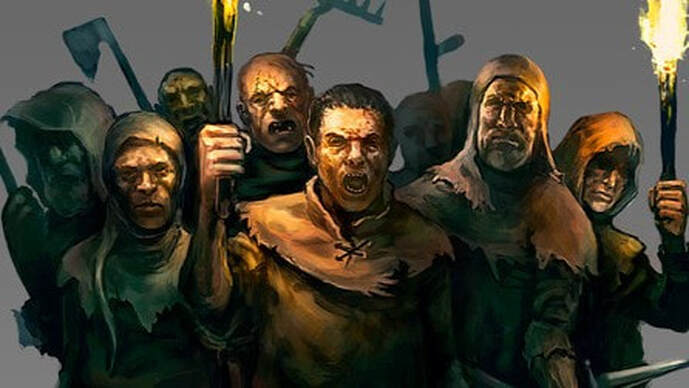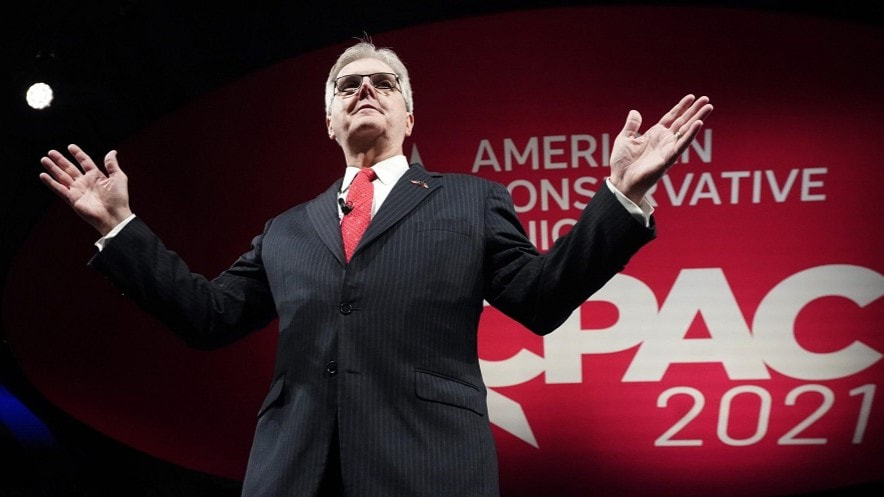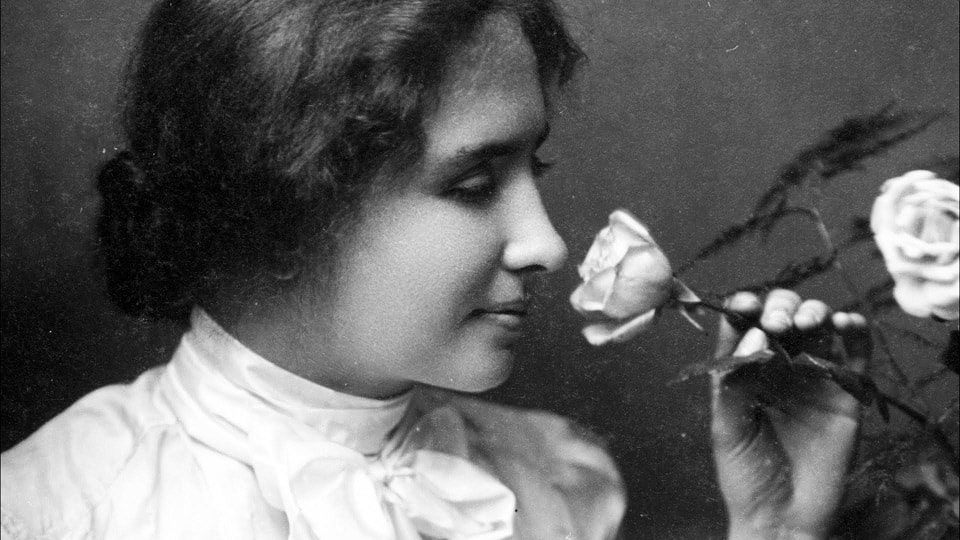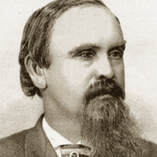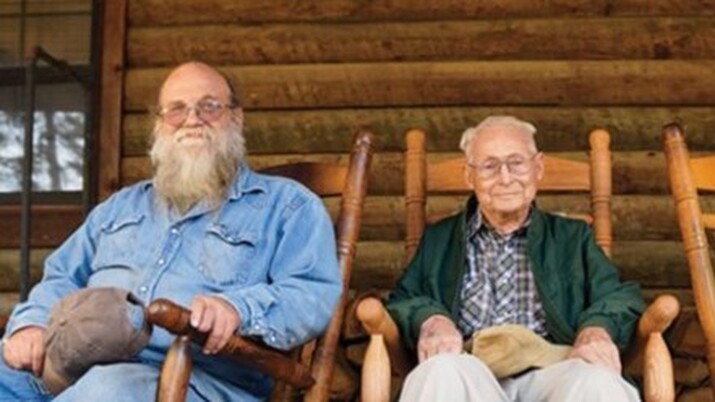|
“Why don’t you get a tractor? You could get more done.” “Don’t need more done.” “But you could get it done faster.” “Faster than what?” “Faster than that mule goes.” The Yankee machine man really wanted to sell this down-south farm boy a tractor on account of the boy seemed to really be struggling with the mule (whom the boy sometimes called "Gee," and sometimes called "Haw," the Yankee wondering why the down-South boy wanted to confuse the mule with multiple names) that was a bit pitiful in the Yankee’s eyes considering he (the mule) was constantly flicking horseflies or mosquitos or various sorts of flying bugs off his ears, not to mention his slow pace–even going so far as stopping once in a while without having been so instructed. The Yankee sold tractors, machines, and whatever mechanical paraphernalia he could muster up and did not understand that the nature of the mule, unlike a horse, allowed him to stop when needing rest. His daddy had never told him that Southerners were like mules and Yankees were like horses: Mules were tough, hard-working, stubborn and smart enough to rest themselves from time to time—what they called leisure. Horses (a few are thoroughbreds, but not many, he had said) will just run and go until they drop dead. Everything needs to be fast, fast and faster. “This mule ain’t going, he’s pullin’. If he wanted to go he’d done gone before now.” “Well, why not just give him a retirement in the pasture. Then I can get you a fine tractor, you would have more time, and your mule could have some pasture time dallying with the girl mules.” The Yankee’s mountain of masterful unknowledge knew no bounds, it seemed. “Then you could use them stud fees and make payments on the tractor which is going to save you time so you can get more done and make the payments on the tractor.” “Excuse me?” “You know. Payments on the tractor.” “What kind of payment?” “Payments…Payments” “You mean there’s mor’n one?” “Oh, of course,” the Yankee replied, realizing the down-South farm boy wasn’t proclivous to high-finance nor high-financing. You see you pay something down and the rest you do over some period of time until you own it. “Down where?” “No, no. Not down, like down. Down like on.” “So you want me to put something out to pasture that I DO own so I can pay for something I don’t own? And I only pay ‘on’ it not ‘for’ it. Have I got this understood right?” “If you wanna put it that way.” The Yankee removed his hat as, the sun was beating down a bit fiercely. “And you think I can pay for it by breeding boy mules and girl mules?” The down-south farm boy had stopped his plowing long enough to chat with the Yankee, and during this pause he had taken out about two fingers worth from his Beechnut pouch and plugged it between his back teeth and gums. Then after letting the leaves settle in and having sucked out some of the delectable juices he spat at a passing horsefly. He missed. But the challenge was in the trying, not in the doing. The Yankee Machine Man wiped his forehead with his dainty monogramed handkerchief, then put his hat back on. One could almost see the thoughts oozing from his brain in machine-like wavelets: These dang old Rebel boys are a difficult lot for explaining modern devices to. “Why certainly. Certainly. Just think of it as rewarding this old mule who has worked so hard for so long. Now he can retire and enjoy himself.” “And you say this is gonna save me time huh?” “Oh, without question, my good man.” “How much time you think I’ll need to get them mules bred?” The mule turned his head toward the YMM and bared his teeth. It wasn’t clear if it was a smile of happiness or frustration. He brayed. Well whatever the gestation period of a beast such as this is, I don’t know. Perhaps something of a long period of months maybe. What would you say? “I’d say it’s prob’ly longer than that.” “Oh, I didn’t know. I’m from New York city. I’m not much up on Southern animals.” The Farm Boy took another spit and missed another horsefly. He pushed his hat back on his forehead, and passed an expression, whether concealed or not, of you ain’t up on a bunch. “Well. Mr. New York Man, or Tractor Man or whatever it is you is, I’d say that tractor you wanna swap me can lay eggs and hatch chickens a whole lot quicker that this mule can get to gesti-cating more mules.” “You mean it’s that long?” “Pretty dang long. But I tell you what I’ll do. I’ll give you half the studs fees in what they call perpetuity for that tractor. My cousin could use it to have him a ride into the hay bailer. That way his wife could use the pickup for family git arounds. I would still have my mules for plowing and you could cash all them stud fees checks you are certain you’ll git. You’d be up there in New York city or wherever it is livin’ the high life with your stud fee money and I’d be mule plowin’ and my cousin would be drivin’ into town on a fine piece of machinery.” The New York tractor man drove away with a smile as big as a harvest moon. Ready to retire like a wealthy Kentucky horse breeder. He had made the swap, a written contract and all, and had left these down south Southern boys a single tractor and a hefty goodbye. The farm Boy was out plowing the next morning when he took a spit and squarely hit a horsefly right between the eyes.
0 Comments
If you travel I-20 east from Jackson, Mississippi, somewhere about 20 miles short of Meridian you’ll see a sign: Hickory Exit. This sign is one almost ad infinitum of green signs along a monster interstate that has sucked the life out of localism, particularly important throughout the South. But should you drive into downtown from old Highway 80, you’ll see a different sign: Welcome to Hickory, Miss. The Little Town with A Big heart. A bit more dash and devotion and emotion than: “Hickory Exit.” Hickory lies in Newton County, an area rich in Southern history; much, which is not uncommon in the South, involves The War–no, not WWII. Newton County was the focal point for one of the John Wayne/John Ford often South-friendly movies about a battle in 1863: The Battle of Newton Station. Results were heartbreaking for the Confederates but illustrated their courage and character. Hickory is the burial ground for much of my family; at least one side of it. My father, grandfather, grandmother, uncles, aunts, cousins and friends are buried in the little cemetery on the hill, facing east, sine qua non. A small area in the rear under large shade trees is the final rest for a handful of Confederate soldiers, though most headstone inscriptions have weathered beyond legibility. The remembrance of where they died still can be read: C.S.A. My great aunt Lula Everett, was born in Hickory, graduated from Blue Mountain college in Blue Mountain, Mississippi, returned to Hickory and taught grade school for 50 years until she retired, an old maid aunt. She lived for all those years in the same house on the small ridge which comes into sight just after rounding the bend and viewing the sign: Welcome to Hickory, Miss., The Little Town with the Big Heart. She finally died there some forty years ago. It was there where my brother and I spent many Christmases and Thanksgivings and many days in many summers with our country cousins. Some of these memories were fictionalized by me in my first novel: MISSISSIPPI COTTON. Through many of those times or days or nights or holidays we felt the heart of TLTWABH. Our elders talking on the screened porch in grown-up talk (a dead phrase, I fear) about things we did not understand, though sometimes teasing our imaginations; our comfortable Uncle Walter, smoking his savory-smelling briar pipe while sitting in the porch swing. He was an Ole Miss Law graduate who returned to TLTWABH, having served at one point as a local judge (hence his nickname among townspeople, Judge), and practiced law for fifty years; the windmill we climbed, standing beside the house, its pump long since having rusted beyond use. Even those who left for distant lands, Jackson, Memphis and even Cousin Bill who late in life moved to Pensacola, returned. Uncle Hiram went to Ole Miss Medical School and practiced medicine in Memphis for over 50 years, though upon his death he returned to TLTWABH. And Uncle Bill who moved to Little Rock and was a successful businessman is buried on the little hill facing east in TLTWABH. My grandmother who also graduated from Blue Mountain and followed my grandfather to Jackson with his lumber business also returned to a final rest in TLTWABH beside her husband. It was in this setting of my home-away-from-home (my brother and I were born and reared in the big city–Jackson) that I discovered something as a boy that I only recognized later as a man: localism. The spirit of “local” is the attendant existence of an agrarian life. Not just in Mississippi, but throughout the South. One has to only read Southern literature to understand the provincial milieu of the South and the agrarian roots that have fed it. From Joel Chandler Harris to William Faulkner to Eudora Welty, and occasionally to John Grisham, when he has the urge, narratives of the South have throbbed with story: aboriginal, provincial, local, which is where all good tales originate; because chronicles or yarn, both, have at least a kernel of truth, and truth is about real people; not pasted together adventures of heroes lurking (mystery) or leaping (adventure) around skyscrapers and towers and up-and-away jet planes crashing via laser powered sci-fi matrixes, but of rural, geographically defined and confined lineage, and always Southern: family, characters, and folksy icons, from Jerry Clower to Junior Johnson to Junior Samples to Jeff Foxworthy , the South has always been, as well, a culture of characters: characters and neighborhoods, not characters and metropolises or empires or interstate highways tying together a nation. But this culture has been pierced by the 4, 6 and 8 lane monster that roars through the countryside with its personification having more power and less conscience than Sherman ever demonstrated. Hickory, Mississippi, population 500, The Little Town with a Big Heart, has been swept aside by a modern monster of enlightenment, and expediency. Presently, the sign designating TLTWABH has been consigned to the edge of the town square so that upon rounding the curve on old highway 80 approaching Hickory, no longer are you greeted by the sign. But few round the bend anymore; most are chasing life on I-20, never to see or experience TLTWABH. The town is still cleaved by the rustic old highway with its browned, aged, concrete and narrow lanes. From Jackson to Brandon to Pelahatchie to Morton to Chunky to … it ran through all the towns, pausing for local stores, and cafes via local speed limits and only a few red lights. In its time a modern conduit, a smaller gash cut through the land for people. The paradox is that the interstate isolates the local; isolates it from people. People pass by not through and no longer visit the stores and cafes, or talk to the locals. They are hurrying to bigness on the other side of the world. Highway 80 seemed harmless. It seemed good. But maybe all roads are as Kildee says in James Kibler’s novel, WALKING TOWARD HOME: “Guess the best thing dirt roads do…is they slow people down. The world’s too much in a hurry, and usually with no place to go. Everything flies by in a blur. And people get to where they don’t belong anywhere and ain’t from no place at all.” But, today the old highway’s seed, the federal interstate monster: the scoured-powered transit with its green exit signs dominated by federal highway programs and DOT and every other acrostic and/or acronym for a mock organism abetting the accelerated dash through the land makes old highway 80 seem as it once appeared to me coming round the bend–a country road, a pathway to family. And though the sign depicting TLTWABH is downtown, away from all, who only pass, it is still committed to heart. Maybe downtown is where it truly belongs; in its home; because it is local; because the South is local. And local is home. Aristotle’s three forms of government and each corrupt form:
A democracy is nothing more than mob rule, where fifty-one percent of the people may take away the rights of the other forty-nine. - Thomas Jefferson The problem for anarchists in achieving success is that in order to reach their goal they must have an organized effort. In other words, a system which creates its own paradox—organized anarchy. So, it is true of a mob. There is no thought within a mob that defends itself as properly governing anything other than with a mob—something that cannot be governed, by definition. This was the tenor in France before finally the mob turned on its own creators and gave them their own up close and personal view of Antoine Louis’ efficient Guillotine. On Tuckers Carlson’s show a few years back, (10-10-18) his opening discussion of the night was the present similarity between the Democratic party’s daily talking points and most (all?) news outlets’ output. Any discussion of the Democrat party today would be along the same lines. On one channel, CNN, the discussion of such mob rule was ridiculed for even suggesting that protestors, who chase senators around restaurants or in elevators and shout and curse in the face of conservative and Republican persons, at any number of functions are anything like a mob. Those protestors were simply exercising free speech according to CNN’s guests. They added that The Tea party was actually more mob-like because they raised their voices and were mostly “racist” anyway. Don Lemon, the host at the time, became irate at the thought that these monsters were any more than citizens exercising their First Amendment rights. According to Lemon the Constitution allows people to protest “whenever and wherever.” Then he repeated the same line within seconds. Not once did anyone on the panel, nor surprisingly did Carlson himself, take the opportunity to either point out or pull out a copy of the First Amendment and read the language which, in part, states “…the right to peaceably assemble…” This sort of backward tutorship and pseudo-academic authority is a pie in the face to those who are not stupid. But then in the United States neck-of-the-woods, this select bunch (not stupid) has taken on fewer and fewer members. Lemon, a pie-thrower, and his cable ilk were insistent on their stance that, any time, any place any way a protest is worthy of protected rights. The assumption was made, apparently, as long as they are Democrat party supporters and not Tea Party apparatchiks, or conservatives, they are quite free to say anything at any time— "peaceably" be damned! Much of historical invention is built around not only our own “Civil War” but a revolution 70 years prior to it. The French Revolution, in the minds of many, was a great undertaking by patriots who were fighting evil aristocrats who were starving and mistreating the common people. These “patriots” in their zeal for freedom and equality simply went a bit too far, resulting in the deaths of 3% of the French population. But The rule of the majority and the concomitant mob-rule took root and resulted in mayhem, executions and finally, Napoleon. It is this history that Democrats should most care about, though they seem not to know of it or understand it if they do (not that the Republicans do either). They might not understand it (which is most likely) or they may simply pretend to not understand it. They feed their mobs with patriotic deceptions and cheer them on when they succeed in driving the opposition from a restaurant or podium or shoot one at a ballgame. Their own congressmen and senators stoke the fires of mob frenzy while watching the political polls in a potential vote calculus. Meanwhile untutored, unread and blustering broadcast agents like Don Lemon and CNN et al (yes, Fox too) with their collective eponymous Robespierre of Booker, Waters, Schumer et Squad squeal for more confrontations. These modern Democrat Jacobins and their Republican Directorate (le Directoire), live lavishly off of the taxpayers in the castle of The Deep State. The current mob activity - as with all mob activity - has no uniformed or informed thought processes. It has action only. And it will never act on instruction, but on uncontrolled frenzy. Not unlike Joe Biden’s White House dogs*. To Chuck Schumer, et al: While the Guillotine has been declared, by law, illegal, what different would that make to the lawless? But, not to worry. Your modern Directorate, as they did of old, will find wars and you can keep your heads in the interim. *Somebody ought to report those S.O. Bidens to the Humane Society. It has long (in my thinking) been the case that pitiful little men like Victor Davis Hanson, Gary Bauer, Clay and BucKO, Jesse Waters, Kilmeade, Hannity et al and the army of pseudo-conservatives posing as “men” over at the Fox “News” Channel, and such other timid shelters, are the sweet little tulips of manhood that are great authors of nonsense simply because honor and honesty are less profitable and often require great strength. Like the tulips that they are, they feed off of manure. So, they produce pretty colors and they smell good. But that’s about it. Oak trees get nature’s treatment. They are fed from the soil which is in turn fed with rain and lightning. But from strong oak comes men like Jackson, Lee and Davis, even courageous Yankees like MacArthur, Patton and Eisenhower; all beautiful and emboldened with honor, and structured with strength---colors and smells be damned. Our Governor here in Texas has taken up the cause of halting the invasion of the State of Texas and by extension an invasion of the “Nation.” This isn’t typical courage from our Governor as he usually walks the moderate line with the best of them. He’s got the political war chest of money to prove it, too. But you take what you can get, even if you have to rely on a former political weakling who could turn around again. But, maybe not. We also have a Lt. Governor (in Texas, the strongest politician due to our constitutional structure) who goes by the name of Dan Patrick. He came to Texas many years ago from Maryland after (for his own reasons) changing his name from Dannie Scott Goeb. But Dannie or Dan or whatever is the guy to keep an eye on. He came into elected office as a conservative, acting day by day as a supporter of most of his (he had bought the station) talk show hosts (Limbaugh et al) and he did, indeed, sound off on most of the conservative messages ay-by-day. But, Patrick is a Republican politician, which means someone who can be trusted about as much as a Democrat politician. The other day after Nikki Haley had become “newsy” for a brief moment (blind sow finding an acorn?) when she mentioned that the “Civil War” was not “about slavery” Patrick was approached about the comment from a reporter. His (paraphrased) words were to the effect that she was absurd. “The war was about slavery.” The truth is Patrick probably doesn’t know what WWII was about. But his mindset at the moment is pure Republican. Probably so is the Governor’s. Texas is a great place with a great history. But its contemporary politicians pretty much stink. But take particular care of Danny Boy. He will flip like a flop in a second. As to the Governor’s current stance on the Feds wanting our barbed wire. I agree with those old fellows at Gonzalez about 200 years ago. “Come and take it.” They were standing at the ledge. Their view mirrored a panorama of buildings and smoke stacks. Great edifices, heaving asymmetrically, skewed with monster cylinders venting plumes of expended energy. The farms, the land, scarcely discernible, were hiding from the crowding machines in ambient spaces where life of life and lives of lives grappled and struggled for survival. The agrarians had lost the battle, and the machines, as if with endeavor, had attempted to reconstruct victories into paradigms from the grist of Ayn Rand or Thomas Hobbes, the dizygotic twins, at once dichotomous and unitary. “Where else other than from the top of a skyscraper can we see the power of the Maker, the Creator of all things dynamic and powerful?” The Banker cusp his hand at his forehead and turned his head in a slow arc, as to inspect the power of capital and treasures of earth. “Nowhere but here; we stand at the zenith,” the CEO of the hedge fund, United Capital World-Wide, her eyes hidden behind the lens of her mirrored-black glasses, stood poised, an erection of pride. “This portrait is a snapshot, a revelation that god is in all of us.” “But this is only an imprint. When all of this before us is finalized, we will truly bring the god in each of us into one god. The combined unit gods will bring all of this to everyone.” The Banker had his own pride. “Don’t forget, the capital purchased the labor.” “Well, I suppose we can agree to disagree,” she said, with cheap mirth; attempted. She knew no humor. “Yes, but then labor is the womb of capital,” he said. “Again, chicken-and-the-egg.” They both chuckled, pretended, he as droll as she. Another man appeared. He was dressed in a brown suit, not the power-dress of the capitalist or power-broker-politician, these two, at times libertarians or socialists, depending on the potential for raked gain. But, brown was the color of integrity. And even the color of the land below the planting. His hair was grey, his eyed masked with wire-rimmed bifocals, his stance erect, exhibiting a posture of strength and character; such traits bred through meekness. Though, his deportment issued a tone–alien. “Excuse me sir. Are you visiting?” the Banker asked. “I am.” “Have you ever been to the city before?” she asked. He moved toward them and shook the Banker’s hand and introduced himself. Then, allowing the CEO to extend her hand, he did likewise with her. “Once, long ago,” he said. “But I was only a boy.” “And, if you don’t mind my asking, what brings you back?” The man in the brown suit turned toward the skyline and stared, his eyes trying to pierce the great volumes of progress before him. “I lost something and came to see what… who vanquished me.” His voice seemed to focus toward the horizon, as his eyes guided his words. The CEO and Banker looked at one another, each with puzzled gaze. Was a response beyond small-talk in order? “What did you lose?” The banker at last spoke. The CEO looked at him as she shrugged her shoulders a bit. She, too, wondered about the comment. However, both were pleased that a somber disposition now enveloped the occasion, given each one’s intrinsic ingredients. “I lost my life.” “Your life? But you are standing here.” The two now tensed, but a bit. He was a strange man, a mutterer of strange patois; of words that seemed almost lunatic, not of someone who should be at the top of a skyscraper, and certainly not close to the ledge. “Yes, my life.” The CEO began rummaging through her handbag. The thought that there might be an emergency had occurred to her. She rifled through the small chattels and bric-a-brac curios and purse such-and-such, finally uncovering the small communiqué device which had defeated The Tower of Babel and brought everyone out of the jungle into communication—the cell phone. “Where do you live?” the Banker asked. It was warm and the stranger removed his coat and flipped it over his shoulder grasping it with the crook of his index finger. “I live in a country far from here.” “Europe?” the CEO queried, her phone now held in the palm of her hand. “No.” “South America ?” Another guess. “No, not South America.” He swung his coat around, and folded it over his arm. “My country is Virginia.” The CEO and Banker glanced at one another with both concerned and quizzical expressions. She waited yet, as to calling. “Well, that isn’t so far. And why do you insist that your life is gone. Virginia is a growing, prosperous state, a credit to our Nation. It has roads, business, industry–great progress and science of course. Science has done so much for us; and it will do even more for your country, as you call it. You should have a fine life.” The stranger walked closer to the edge. The CEO opened her cell phone. “I speak, as they say ‘in the abstract.’ My country is farther from me than I from it.” “But how can that be?” the banker asked. “How can one thing be farther from another thing. They can only be equally far; or equally near.” He glanced at the CEO. She returned the look. The stranger truly was serious, they thought. Again, just as well, as they were beyond their facility even if he weren’t. “As I said, I speak in the abstract, though maybe I am in the wrong area of language. After all, I am not in my country and have little wisdom from which to draw from what I see across the scope before me. I was a farmer. But my land was taken from me for a factory. They said it was best for all concerned. They said it was progress. And they said that my remuneration would enable me to live a better life. But I told them that I only wanted my life. And I asked if the ‘remuneration’ had also purchased my soul? They did not answer. I don’t think they cared. They said that I should see some of the great progressive areas of the Nation. Then I would realize what my land would bring about when used best.” He inched slightly closer to the edge then with his free arm he waved it in an arc pointing across the land of structures and smoke before him. “They said that I should spend some money on a trip to some of the great progressive places and look out over the breadth of them, and then I would see and understand what I had not comprehended before. I know now that I am very far from home; that the progression that is before me exceeds my ability to grasp its reality.” He focused on the CEO. “Is that one of those portable phones in your hand?’ “Yes. It’s my cell phone.” “You carry it everywhere? Why?” “I might have an emergency. I might need help.” She had emphasized her last word. “Really. You believe you can call God with a device?” He stepped back a bit, then lifted his head as if toward heaven and in a soft, ordinary, baritone began to sing: I heard the voice of Jesus say, “Behold, I freely give the living water; thirsty one, stoop down and drink, and live.” I came to Jesus, and I drank of that life-giving stream; my thirst was quenched, my soul revived, and now I live in him. I heard the voice of Jesus say, “I am this dark world’s light; look unto me, thy morn shall rise, and all thy day be bright.” I looked to Jesus, and I found in him my Star, my Sun; and in that light of life I’ll walk till traveling days are done.* The CEO stepped away a few steps. He is a madman, she thought. First talking about his life being over and gone, then babbling some Jesus song; though he did have a pleasant voice.
The Banker had backed away, too. Someone this peculiar might be one of those hicks who believed in snake handling and such. He didn’t want to be close to someone like that so near the clouds. He thought that the stranger was clearly muddled; clearly absent of clear and modern thought; unaware of Ockham’s razor–lex parsimoniae. He was making complications of life needlessly or he was insane. Didn’t he know that land is to be used, not worshiped; it was to be maximized not nurtured: this fool in a rumpled brown suit; a throwback to medival craftsmen or 19th century agrarians. Perhaps like Amish priests: localized morons trying to live somewhere that wasn’t anymore. Progress and land were for the world and the thinkers; not for simple-minded wretches who could not perceive enhancement. Certainly, they should share the prosperity. They would receive their trickle, after all: progress. The stranger removed his glasses, wiped them with his handkerchief and placed them back on. As if a mind-reader, he spoke: “I know nothing of cognitive relativism or moral relativism. I know that you and your people believe in Turing machines. I believe in my land and my country. Because I have lost the first, I have given up the second. He put his finger under one of the lens of his glasses as if to wipe away a tear. He dropped his coat and stepped on the ledge. He stepped away. The CEO dialed 911. God… The tiny, candle-light streams through darkness, Piercing all barriers of the night; In a place one tarries, then swings about, Knowing heaven clears the path, thus bright. Honeycombed wax holds solely a wick, While bracing around a flame, That melts the tower of time; Spreading below, while losing same. Where the path leads, is eternity’s age. A clearing ahead is sought. But without His charged brightness, The end will meet with fraught. That modest glow appears, oh, small! The miracle of a lighted touch. And flickering is ceaseless; While we look to Him for much. A blaze will surge upon conviction. That ignited spark of light strikes hot, While zeal and light billow, The dark, dearth of fealty must not. The brightened path streams unto heaven, Unveiling angels with opened wings; As chorales of peace on earth reveal, The glory of eternity, that the candle brings. I watched a T.V. movie the other night wherein the female lead cussed and killed and punched guys around; a normal part of the plot these days. Women have won their struggle to become E-quality of men. Sacrificing the explicit notice of male and female, the implicit of ladies and gentlemen, no longer are we burdened with great men or great women. Now we allowed only great people: chair-people, cow-people, work-people-ship, games-people-ship; oh, well--oink. I admit to being a male-chauvinist pig. To hear from the left and right (conservatives have no voice on cable news) about our brave men, and women, getting shot and maimed doesn’t exhilarate me the way it seems to others. All of this may seem to be a ramble, and perhaps it is though its intended structure is toward a point. That is, through all of my oink beliefs I believe that the greatest person that America ever produced was not only a Southerner, but a woman. That woman, that person, was Helen Keller. I defy anyone to name anyone of any prominence (or not prominent) who did more with less than she did. When before the age of two you are blind, deaf and effectively mute, life is dang sure a hill to climb. With the help of another woman of immense dedication and backbone, Anne Sullivan, a hard-headed Irishwoman who wouldn’t quit, Miss Keller became the first blind and deaf person to graduate from college (Ratcliffe). Afterwards she became a world-wide speaker (her speaking abilities were stunted in childhood by her deafness), and author of almost a dozen books. She operated both regular and Braille typewriters. She was awarded the Presidential Medal of Freedom. Her politics were (as with Mark Twain, her friend) what would be today called “extremely left.” She was a socialist, a suffragist, a founder of the ACLU; and often these were vehicles in her goals to help the blind (Personal note: my own maternal grandmother taught music to blind students in the 1930s at the Mississippi School for the Blind). But it does not matter to me what her politics or motives were. Her politics and mine may be on different horizons, but it has always been in my heart since I was a boy, that Helen Keller is, perhaps, the greatest example of God’s admonition that there need be no impossible. I believe He gave her for us. And because of Him she was our greatest American--and a lady. I wish I could have spoken with her. I wish I could have spoken with Robert E. Lee. Lee Sam and Abner were settin’ on the porch drinking ice-tea one day when the Yankee from Boston come running his Honda Civic up the road to the house. He stopped, and as it was July and hadn’t rained in a month, the dust kinda poured over his car when he stopped. He got out a coughing and fussing and fuming, as most Yankees do, as they’re always in a hurry and so always got something botherin‘ ‘em. “Why can’t you pave this road?” He coughed. In this case the dust was botherin’ him. Lee Sam and Abner turned and looked at each other conveying an obvious thought (to them) that if he’d drive half as fast he’d get choked ‘bout half as much. Abner Scratched his ear and pointed at the flock that was settlin’ after the Honda had scatterd ‘em . “If we was to pave it, them chickens wouldn’t have near-bout as much peckin’ room.” “Well, Hell why don’t you at least put down some gravel?” the Yankee said. “Gravel cost money. Dat dirt come wid de land.” Lee Sam said. Besides, chickens can’t peck through gravel. And Abner jus now told you ‘bout de chicken situation.” “Well, why don’t you buy chickens and eggs at the store? Then you could have a nice yard.” “Don’t want a nice yard. What’d we do with a nice yard?” Abner said. “Then we’d just have to water it. Hose water cost money. Rainwater don‘t.” “Besides,” Lee Sam took over the persuasion, “ Dem chickens keep de termites away.” The Yankee stepped up on the porch and handed the pair a package, too big to have fitted in the mailbox at the end of the road, which is the reason he had to drive down the road in the first place. “Well, you can get chemicals to get rid of termites.” “You gotta keep on buying chemicals. Chickens can redo themselves,” Abner said. “Say, wuz you a mailman when before you wuz here?” Lee Sam asked. “Indeed, I was. I’ve been a mailman for ten years.” “Why den, did you leave New Jersey or whatever it wuz up there you wuz livin’ in?” “Boston. It was Boston,” the mailman said. “Well, wad you come down here for?” Abner asked. He glanced at Lee Sam. “Well I got tired of the cold winters; the crowds everywhere; everybody pushing and a shoving and in a hurry; the smokestacks with the toxic fumes pouring out; and food prices were so high. And freeways and parking lots was taking over everywhere. I just ask for a transfer so I could go south where there’s blue skies and warm weather and not so many people to bump into. I needed to live a more relaxing life you might say.” “Got time for a glass of tea?” Abner asked. “No thanks. Got to hurry and finish my route.” The Yankee and the Honda sped down the road in a cloud of dust. Oliver Anthony’s song “Rich Men North of Richmond” has exploded in the face of the Washington narcissists and their Woke weasels and weasel-etts. The concussion has loosened a rumble, particularly among the cackling hens who once craved “equality” but now realize the old expression that “It’s a man’s world” may have meant something other than it was “literally” (that so often ill-used word) so.
And the initial crowd, from many years back, of Title 9 warriors and cheerleaders happily has gathered up allies along the way—not understanding or realizing what trashy allies would greedily latch on. Rich MEN North of Richmond. Men? What men? Rich Eunuchs North of Richmond would be more appropriate. Nothing but Woke women up that way to rule. Rules by fools. The degeneration of both creation and political republicanism that would make Eve proud that she lied, lives, in that cold corrupt northern clime north of Richmond. "Woke" had its birth (and afterbirth) in the "women's movement." It spilled over and gave birth to other movements: racial, sodomy, abortion…and generally any idiotic concept that one could conjure through the human imagination. The litany of these things always had Washington standing by to support, praise, and, of course, fund (with kickback votes in return) with taxpayers’ money (charged of course to their 30 trillion-dollar debt). And the bill has always come back to the Roosters and Rednecks. But the final debt will be on the henhouse’s books. Oh, yes. The Roosters will crow and the Rednecks will swear, but the cackling will continue with; “It’s his fault.” If one dies, both die. These hens also have learned, though still may not admit it, that there are not two genders of people, but there are two sexes of people. For the public school and university crowd, “words” have a gender, “people” have a sex. But employing sanity to persuade, is not contemporarily “de rigueur” for the Woke weasels. They bow to the “ladies.” Weasels have no courage. Those bureaucratic lovers of Life by the Potomac are perhaps worrying that their “progressive” constituents are, in all their stupidity, being taught through some redneck musical twang that Sex and the Single Girl was a book written by Helen Gurley Brown for the liberated woman and not a high-class bourgeois sex vacation for the nouveau riche. It is (was) not a “Love Boat” manual for Jeffrey Epstein’s island of paradise for rich jackals. Or maybe…hmmm, who knows? Maybe Brown was actually a sheep in wolf clothing! But whatever subliminal poetry Mr. Anthony intends, government believes itself to be mammon’s altar; and Anthony’s song is a great high-pitched bleating. That altar expects receipt of all sacrifice from sex, sex deviations and derivations to taxes and screaming sheep. Perhaps it is the Anti-Doxology: “Praise Deep State from whom All Blessings Flow”? And taxes always go up, and up and up when labyrinths of so-called government are created out of bureaucratic mental magic. Someone has to pay. Stupidity produces nothing, and corruption cost plenty. Rednecks, also, are sinful, but they don't believe in sin. They are ashamed of it. They don't believe they can be cured, only saved. Roosters no longer crow, alerting all that the sun is rising. They crow because all the corn in the yard has been eaten by perverts, green monsters, and spoiled children who are paraded before international cameras explaining how the world works, works badly, and must be corrected. But even deeper is the revelation that Brown's instructions and recommendations wrought the same sassy and silly solutions as per Elizabeth Cady Stanton and Susan B. Anthony. The underlying message was that Men and Women are the same, ipso facto equal in “mind and body.” “RMNOR” isn't the end-all and be-all of return fire at the Woke and Washington crowd. But it has enough buyers out there in the best-seller and #1 I-Tune crowd to get the attention of the progressives, whether congressmen, senators, judges, governors, or local district attorneys and mayors. As one of the so-called generations (Z, X, Boomer, whatever) remembers and states; “roosters rock.” Whether or not it (RMNOR) lasts, considering the various publications and reports of testosterone shortage in the U.S. is anybody’s guess. We’ll see. Man-shortage is the problem. Not the sperm count—the delinquency count. If you not only hear the words, in song, but observe Mr. Anthony’s face, the lines in it, the focus of his eyes, and, as well, absorb the spirit of his composition you see not just someone who turned down several million dollars for the golden opportunity for gold; but you see the eyes, the facial lines and the vision of not only a man, but a gentleman, we hope—if and only if, there is TRUTH there. Certainly, there are still a few of that breed. Culture and strength? No sale to the media trash (the body whole). But, down South we know well the scalawag, and we know well the gentleman-- and the lady. We have seen the vileness of the one and the honor of the other. Hopes are that this will be a song of the second. Time will tell. And contrary to the caricature clownish floor speakers and babblers in Congress, there is no such thing as a “gentlelady”. Women who are ladies are such, often in spite of men, not because of them. Sing us a happy tune master and musician: For the farmer, worker, mother, father, brother, sister, soldier—taxpayer, and blood-shedder all. Raise your voice so that others of the timbre of Thomas Paine and Patrick Henry are wakened to shout, again. And to those men in their graves who haunt and heckle today’s monstrous “people” in Washington, D.C.; the same people who lie to us and steal from us. Split their eardrums with song; chase their blackened spirits into fires hotter than hell! Sing it from your Virginia home, and sing it loud, and sing it long, Boy. Sing it! DON’T THREAD ON ME! |
AuthorPaul Yarbrough has written several pieces over the last few years for_ The Blue State Conservative, NOQ, The Daily Caller, Communities Digital News, American Thinker, The Abbeville Institute, Lew Rockwell _and perhaps two or three others. He is also the author of 4 published novels (all Southern stories , one a Kindle Bestseller), a few short stories and a handful of poems. Archives
June 2024
|
Proudly powered by Weebly



